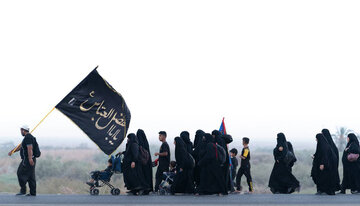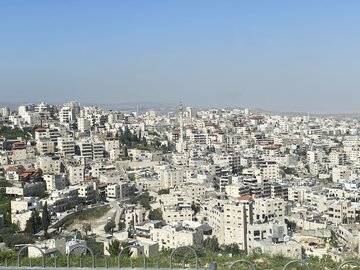During Ramadan, it's almost obligatory to be seen munching on dates, the sweet, oval fruits borne from palm date trees. This is because dates — which have been a staple food in the Middle East for thousands of years — have long been a traditional means of breaking the fast during Ramadan as they provide a quick energy boost that jump starts the body after a day without food. It is said that the Prophet Muhammad himself always broke the fast with dates.
But when one moves beyond the context of the holy month, it’s eye-opening to realize the impact palm dates have had on the health, livelihoods and social well-being of different people throughout the course of history. Over time, these little fruits — known by the Bedouins as “the desert oasis” and “the pillar of life” — have tended to positively impact the lives of everyone who has consumed them.
From ancient Sumerians who first took food and shelter in palm date groves, to poets who praised the fruit’s virtues and, finally, to today’s modern four-star chefs who serve it in the world’s finest eateries, it is undeniable that the date has come a very long way.
So far that today, dates are the main attraction at places like Bateel Jakarta. The new shop in Senayan City mall is spearheading yet another reinvention of this ancient fruit by making it the centerpiece in an assortment of world-class desserts.
Yes, this humble fruit that was instrumental in warding off starvation in the sand dunes is, today, being artfully transformed into exotic fusion desserts by world-class pastry chefs.
At Bateel, a confectioner with branches across the Middle East and Southeast Asia, to-go orders are wrapped in packaging so luxurious it might make a palm date blush.
A large menu invites customers to choose from a lavish assortment of premium quality dates, date truffles, chocolate pralines, pastries and other gourmet delicacies.
If it wasn’t before, it’s probably clear now that, even drizzled in chocolate and truffle oil, this unassuming little fruit refuses to be pigeonholed.
In fact, when one takes a look at the history of palm dates it becomes clear that they pack a Sahara-sized wallop when it comes to the imprint they have had on history.
Known to be an excellent source of vitamins and minerals, dates contain high levels of calcium, iron, magnesium and potassium (about 2.5 percent more than bananas, already a rich source).
Dates are also known to raise the red-blood cell count of those being treated for dengue fever, are believed to help prevent cancer and heart disease and, if that’s not enough, are a safe alternative when it comes time for diabetics to satisfy their sweet tooth.
In terms of agricultural production, modern palm date farms have long since expanded from their birth in Mesopotamia and today is a worldwide industry spanning the globe from Egypt to Israel and from Saudi Arabia to southern California, producing thousands of different date varieties.
Bateel’s date farms in Saudi Arabia produce 25 types of dates, said Tania Walla, general manager of Bateel Jakarta.
“We’ve tried to grow some other types in our area, but they didn’t produce, so we stick to what we observed as the best.”
The most popular is agwa, known in Indonesian as kurma nabi or the “Prophet’s date.” It is believed that the Prophet Muhammad favored this variety.
Agwa usually has dark brown to black skin, a raisin-like texture and bears a mild level of sweetness in its flesh.
The history of the popular date attracts a lot of people to pick it up for a taste, even if it’s not at its full-grown.
“Turns out that not only ripe date are selected, but those that are not even half-ripe are also wanted by costumers,” Tania said.
According to her, there are three phases that define ripeness of dates. Balah is when the date is not mature and its flesh is still crunchy. Astringent to the taste, this greenish-yellow date is just as popular as a ripe one among date enthusiasts.
The next phase, half-ripe, or rhutab, sells about as well as the tamr, or ripe dates, Tania said.
“Don’t get it wrong, but rhutab has a softer texture than the ripe dates, she said.
All Bateel dates are grown in the company’s own farms in Saudi Arabia and each is hand-picked to make sure the fruit is at its best to consume," Tania said.
The dates are cleaned in the factory and then stored at carefully controlled temperatures to prevent the growth of any micro-organism that could spoil the fruit.
“If stored at the right temperature, the outer layer of a date should look healthy. Not always shiny, because some have their natural unclear colors, but they are all in very good conditions,” she said.
Tania said the price of dates is about four times higher during Ramadan, with customers buying the fruits to eat themselves or give away as gifts.
“But despite the origin of the fruit, we have not seen many Arab people coming,” she said. “I think it’s because they are already familiar to its taste and benefits.”
One customer, Yusuf Asikin, said he eats dates for the taste and because they make him feel full. “I don’t really know what goodness it contains, but it’s a snack that I like,” the 32-year-old graphic designer said.
End item/ 159




